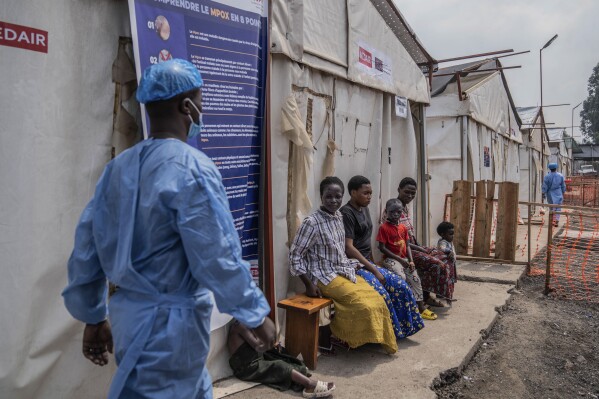A new, potentially deadlier strain of mpox appears to have been detected in Thailand, adding to a list of three countries outside of Africa where the new strain may have spread.
According to Thailand's Department of Disease Control, the 66-year-old patient had arrived from Africa on August 14 and began to develop small rashes the following day. The man was admitted to hospital and early analysis suggests that the virus was different to previously circulating mpox strains. However, further testing is required to confirm this.
In a statement on Wednesday, health officials said that the 43 passengers seated near the infected individual on the airplane were being closely monitored.
Mpox, formerly known as monkeypox, drew global attention in 2022 during an outbreak that affected the U.S., Europe, Australia and many other countries. The virus comes in two distinct forms, or "clades"—clade I and clade II—and spreads through close contact.
The previous outbreak in the U.S. and Europe was driven by the clade II form of the virus and was mostly spread through sexual and intimate contact, with men who have sex with other men being at the highest risk of infection.
Since the start of 2024, there have been a suspected 17,000 mpox cases in Africa, with 517 confirmed deaths, the Africa Centers for Disease Control and Prevention report. More than 96 percent of all cases and deaths have been reported in the Democratic Republic of the Congo, where a new variant of the clade I virus, called clade Ib, was first detected.
Clade Ib is thought to cause more severe disease than previous variants and the situation in Africa has been declared a public health emergency of international concern by the World Health Organization.
Last week, the first case of clade Ib mpox was detected outside of Africa, in Sweden. A suspected case was also reported in Pakistan but tests to confirm this are still ongoing.
Now, Thailand has joined the growing list of countries where a potential case of this new variant is being confirmed.
No cases of the new mpox variant have yet been detected in the U.S., and the Centers for Disease Control and Prevention (CDC) have said that the risk of clade I mpox to the American public is "very low."
The CDC added that those in the U.S. who have had mpox or are fully vaccinated should be protected against both clade I and clade II types. You can also protect yourself by taking the following precautions:
- Avoid close contact with people who are sick with mpox symptoms, like skin lesions, especially around the genitals.
- Avoid contact with wild animals in areas where mpox regularly occurs (for example, while traveling.)
- Avoid contact with contaminated people and materials, such as bedding and clothing, used by people who are sick.
Is there a health problem that's worrying you? Let us know via health@newsweek.com. We can ask experts for advice, and your story could be featured in Newsweek.
Disclaimer: The copyright of this article belongs to the original author. Reposting this article is solely for the purpose of information dissemination and does not constitute any investment advice. If there is any infringement, please contact us immediately. We will make corrections or deletions as necessary. Thank you.




